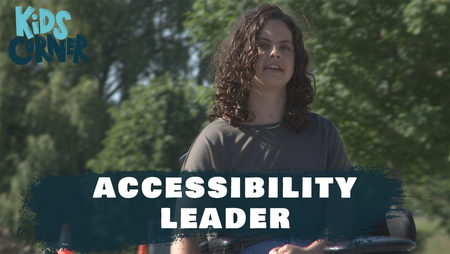
The Story of a Name
Bible Verse
15 Wherever you go, I will watch over you, then later I will bring you back to this land. I won't leave you—I will do all I have promised. Genesis 28:15
Growing up, my dad often drove me to school. When he dropped me off, he always repeated, “Have a good day, kiddo. Remember who you are.” Once, in middle school, I hopped out of the car before he could speak, hoping to escape his message, but he just rolled down the window and leaned out.
“Hey, Sa!” Using his nickname for me forced me to look back. “Remember who you are!” he grinned. I rolled my eyes and shuffled into the building; secretly, I appreciated the reminder.
To some ears, my dad’s words might have sounded like a warning, but I knew them as an invitation. “Remember who you are” was code language for “Remember, you belong to God.” His words changed the way I thought about myself, giving a shy and nervous middle schooler the courage to face her day. I didn’t have to be strong or brave. I just had to be Sara, God’s kid.
Jacob lived a grasping life, often taking into his own hands what he should have entrusted to God. During his dream, the angel wrenches Jacob’s hip out of its socket, creating a permanent limp—a sign of his encounter with God. In the heat of battle, Jacob boldly demands a blessing from God. God instead gives Jacob a new name, calling him Israel, or literally, “one who wrestles with God.”
Jacob’s new name reminds him of God’s long-ago promise when Jacob first fled his brother Esau’s wrath. In another dream, God pledged, "Your descendants will spread over the earth in all directions and will become as numerous as the specks of dust. Your family will be a blessing to all people” (Genesis 28:14, CEV). Jacob would become the father of Israel. And indeed, Jacob’s twelve sons became the leaders of Israel’s twelve tribes. God did all he promised.
Your children will carry the names you gave them their entire lives; perhaps they love to hear the story of those names. But they also need to hear and claim the story of this blessing: you belong to God. In simple ways, parents can tell and retell their children that story their entire lives. It will never get old.
Here are three ideas for digging deeper into God’s words of blessing:
Genesis 25–33 contains the accounts of Isaac, Jacob, Esau, and their families. Read the whole story together, breaking up the reading over a series of days. Ask wondering questions and make predictions along the way. I wonder how Esau felt when Jacob tricked him. What do you think will happen when Jacob and Esau meet again? Check out the KC Bible stories Jacob and Esau and Jacob Becomes Israel.
Pray words of blessing together, using Scripture. You can read a psalm together after dinner or before bed and then pray, thanking God that his ancient blessings are still true for your family today. You can also read part of a psalm, inserting your child’s name as you pray. For example, “The Lord Almighty is with Kaleb, and the God of Jacob is Kaleb’s fortress” (Psalm 46:11, CEV).
Jacob’s life-long limp reminded him of God’s blessing. Does your family have stories that remind you of God’s blessings? Tell and retell those stories together. We bless each other when we communally remember God’s promises.
As you look back on Jacob's story, remember that his lessons and blessings are ours too. No matter what difficulties we face in life, God will always be with us because we belong to him.
Want to do a deep dive? Check out Family Fire's article Claiming Our Spiritual Identity.




